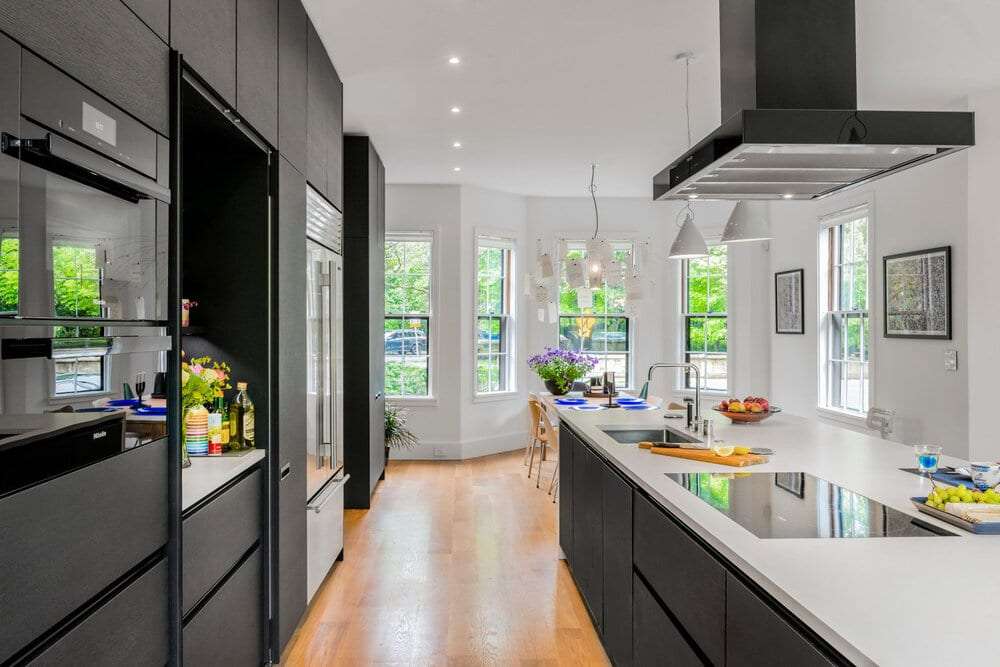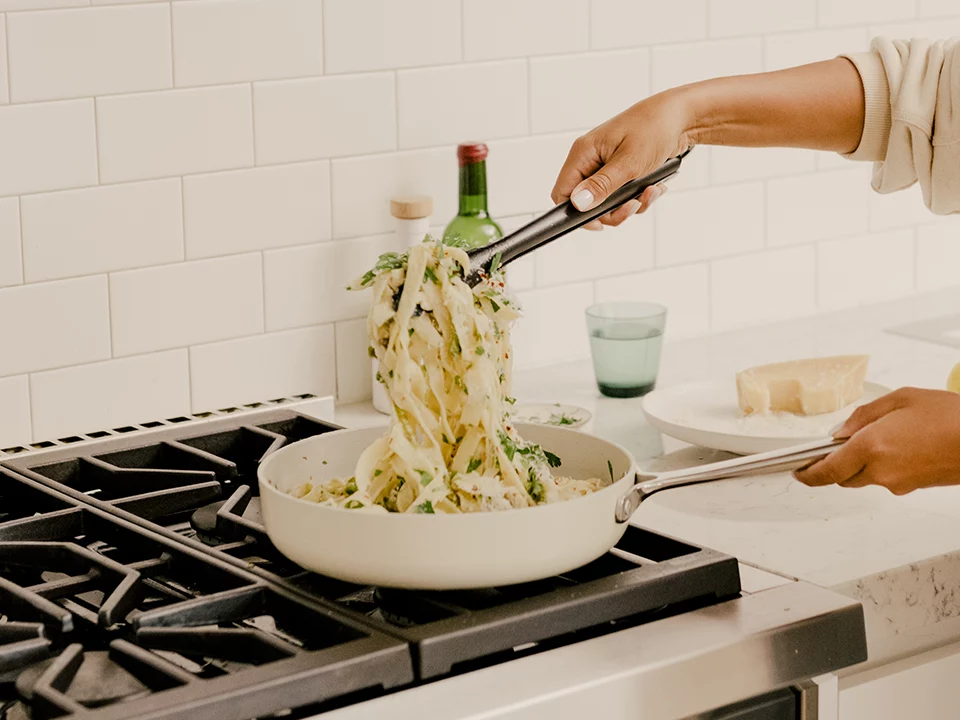Turns out, the lowest hanging fruit when it comes to making your home more energy efficient is in your kitchen.
Most people spend a lot of time in their kitchens. Maybe even more than they realize. While you can’t unplug your refrigerator when not in use like other appliances in the home, there are a number of easy kitchen hacks that can save you money and reduce your carbon footprint.
When you make your kitchen energy efficient, your whole home becomes more sustainable. These hacks are so simple they’ll become second nature in no time.

1. Use energy-efficient appliances
The biggest impact you can have on your kitchen energy use is by using energy-efficient appliances from the start. These can reduce your overall energy costs and reduce your carbon footprint. From ranges and stoves to refrigerators and dishwashers and more, when it’s time to upgrade, be sure you use an energy-efficient option. A number of brands making energy-efficient appliances are also using sustainable practices and materials, too.
2. Meal plan
Food waste is a big problem for the planet (globally, we throw away nearly 40 percent of edible food every year). But this wasted food also puts a toll on your dishwasher when you toss out leftovers. It can block airflow in your refrigerator, and more. On the flip side, if you often wait to decide what’s for dinner until the last second, then that typically means you’re defrosting food in the microwave, too. It’s an energy suck you can avoid by simply defrosting overnight in the fridge.
Solution for both of these issues? Meal plan. Work to sketch out your meals for the week. Do a bit of batch cooking prep work so you reduce the workload during the week. This also cuts down on cooking time when you’re tossing together pre-cooked veggies, grains, beans, etc. They just need a bit of warming up.
3. Embrace the single pot
Like your mom used to say, the food is all going to the same place once you eat it, so why not help it along by embracing one-pot meals? They’re easy to cook, reduce your energy use on the stove or in the oven, and reduce your energy use on clean-up, too. From soups and stews to casseroles, risotto, curries, and more, the one-pot meal options are endlessly delicious.
4. Use residual heat
The cooking directions for your pasta say to boil for 8-10 minutes? Try turning off the water at minute 5 but leave it on the stove covered for another five and see what happens. Food doesn’t stop cooking once the stove is turned off, especially if it’s already at the boiling point. This is a valuable thing to remember if you frequently (ahem) overcook your food, too. That may happen after you’ve turned off the heat. Reduce your active cooking time and see if your food doesn’t come out perfect while your energy bills drops.

5. Switch to induction cooking
While chefs prefer gas stovetops, the planet, and your energy bill, do not. Gas cooking is also linked to a host of health issues (you should always cook on gas in a well-ventilated area). Enter: induction cooking. Not only does this reduce the health and environmental risks associated with gas, but it’ll reduce your energy use and your energy bills.
6. Use a slow cooker
Slow cookers are energy-efficient life savers. Make this part of your weekly meal prep plan and you’ll save energy and time. Throw ingredients in the night before or in the morning and a delicious, no-fuss meal is waiting on the other side. Love a multi-use tool? The Instant Pot is a game-changer. It can sauté, steam, cook rice, beans, and so much more, too.
7. Fill your oven
Turning on the oven means you’re sending a lot of energy to it. Bit of a waste to turn the whole thing on for one pot pie. Instead, fill it up with a few trays or dishes of food to cook all at once, even if you’re only eating one thing that day. Store the rest for quick re-heated meals, or even freeze some items for later.
8. Use a wok
You don’t need formal training to cook in a wok, but using one will make you feel like an expert chef. Woks, which originated in South Asia, were developed to maximize heat because of low access to firewood. In other words, it cooks quickly minimizing your energy use. But all your friends and family need to know is you’re now a master chef.
Related on Ethos:


